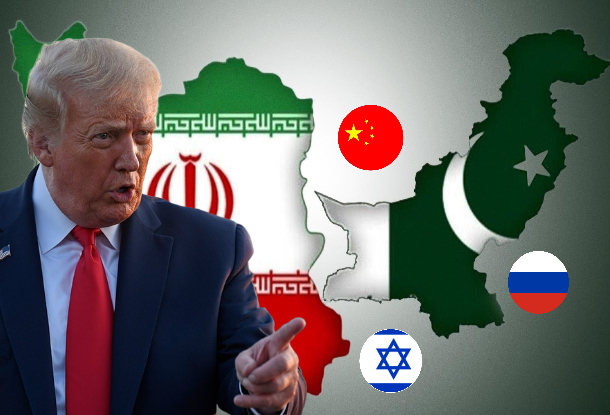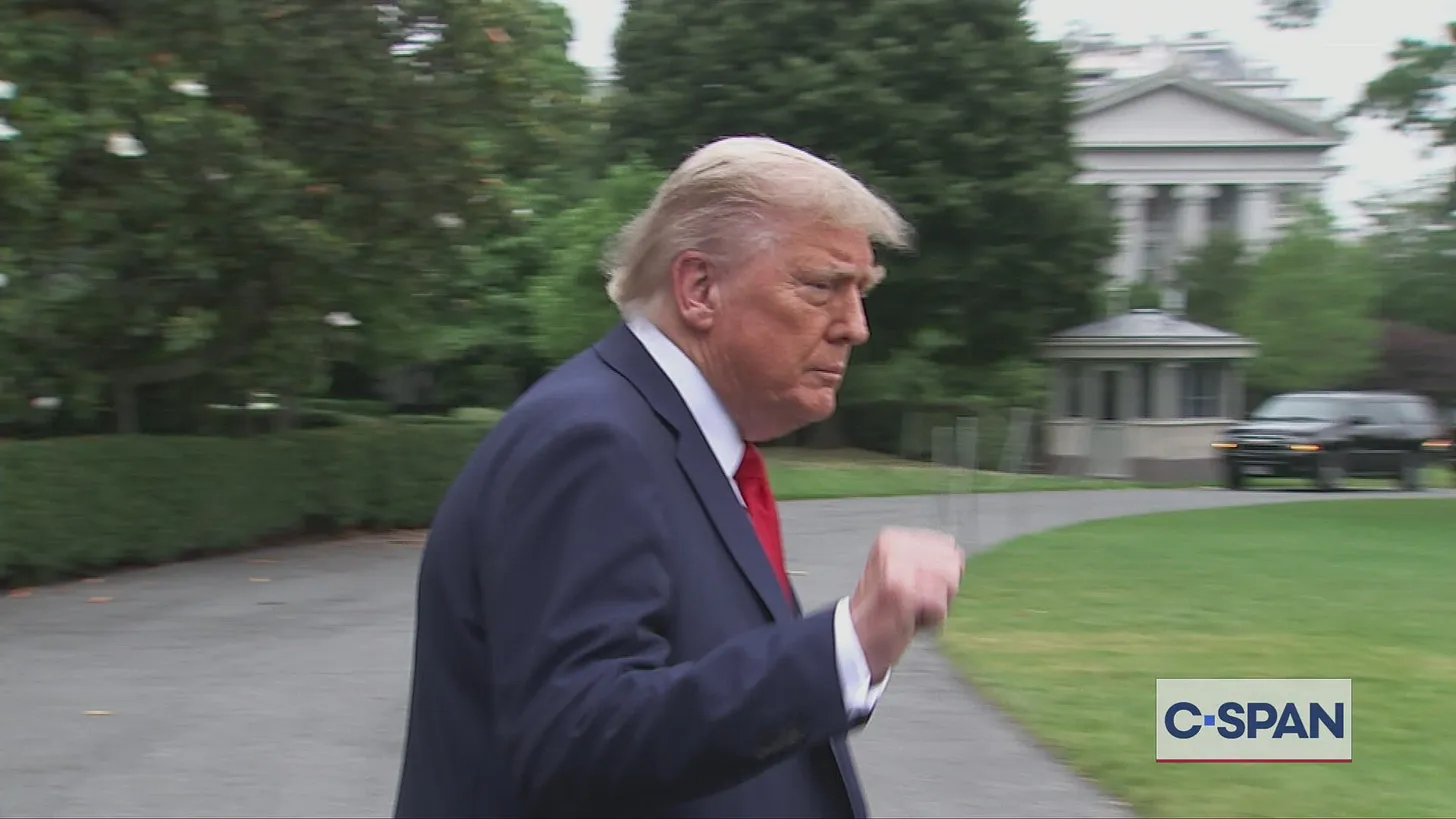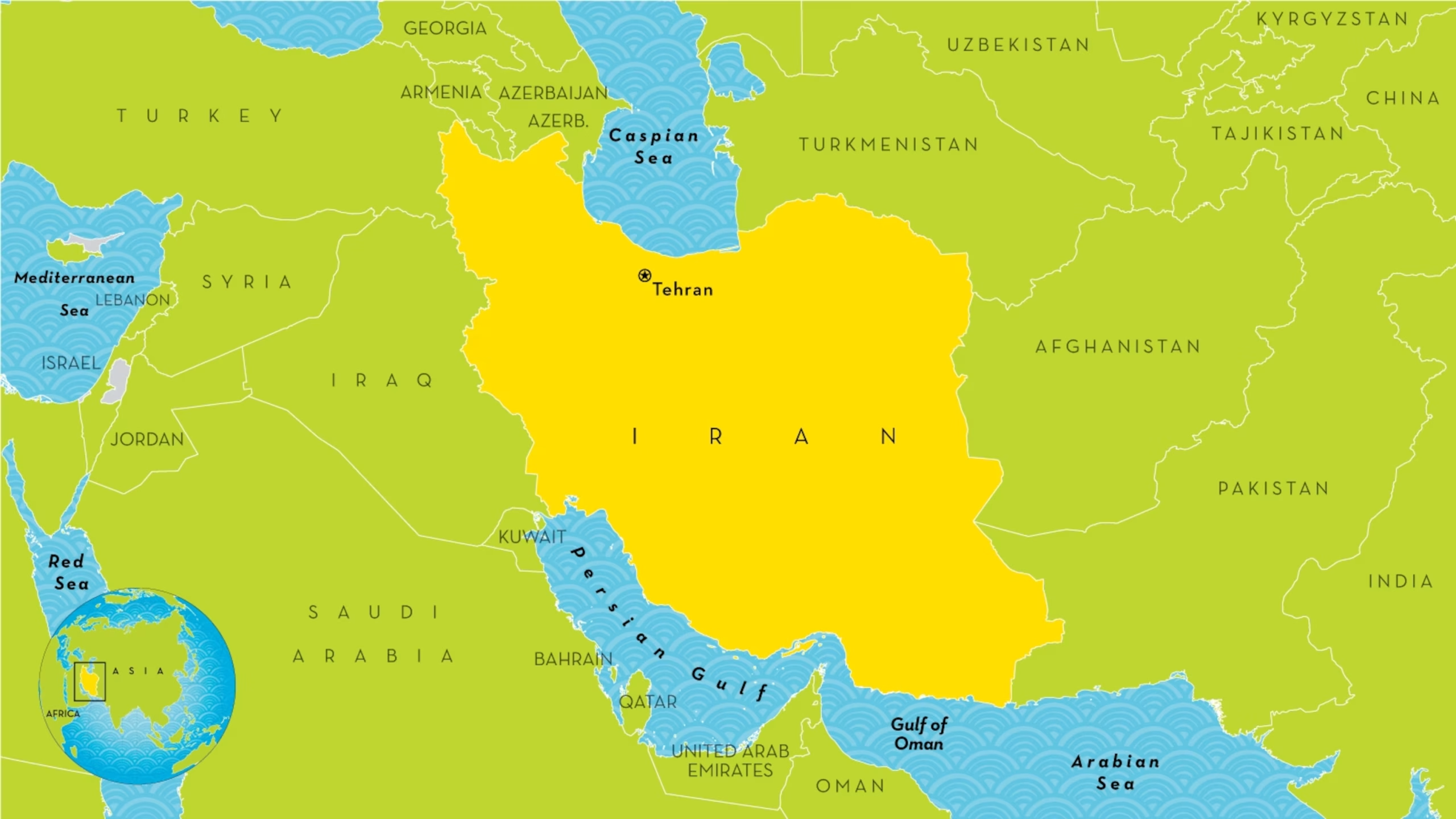A week ago, Pakistan informed the United Nations Security Council during an emergency session held on Friday, 13, that Israel’s attacks on Iranian nuclear and military installations represent a “grave danger and a serious threat” to the peace, security, and stability of the entire region and beyond. In his statements, the Permanent Representative of Pakistan to the United Nations, Ambassador Asim Iftikhar Ahmad, vehemently denounced the “unjustified and illegitimate” aggression perpetrated by Israel against Iran, reiterating that Islamabad remained firmly in solidarity with the Iranian government and its citizens.
On June 18th, the White House hosted a historic event as it marked the first time an American president welcomed a Pakistani chief of army staff in a private setting. Despite decades of military collaboration, the visual significance of this meeting was unprecedented. The backdrop of escalating tensions between Israel and Iran added to its importance, as President Donald Trump met with Pakistan Field Marshal Asim Munir for a private luncheon in the Cabinet Room, with no Pakistani civilian officials present. Notably absent were an ambassador or foreign minister; only the army chief and Pakistan’s intelligence chief, Lt Gen Asim Malik, attended. Trump was joined by Secretary of State Marco Rubio and Special Representative for Middle Eastern Affairs Steve Witkoff, underscoring the strategic importance of the meeting for both nations. However, what was not reported is that Pakistan’s army chief, Field Marshal Asim Munir, was quietly summoned to the US Central Command headquarters in Florida for reasons that have remained unclear.
Last weekend, in an interview aired on Iranian state television, Mohsen Rezaei, a prominent member of the Iranian National Security Council and a high-ranking official in the Islamic Revolutionary Guard Corps (IRGC), asserted that Pakistan would initiate a nuclear strike on Israel should Israel deploy a nuclear bomb against Iran. While Pakistan has denied the claim and has not issued any statements regarding the potential use of nuclear arms against Israel, it has, however, expressed support for Iran in its conflict with Israel. Although we can speculate on the true reason behind the visit of Pakistan’s Field Marshal and Head of Intelligence to the U.S. capital, it is evident that the potential for Pakistan and China to collaborate closely with Tehran is an issue that the United States would seek to address with urgency, while simultaneously striving to draw Islamabad away from the influence of China and the Russia-led BRICS alliance. Yesterday, Pakistan’s Foreign Office Spokesperson, Shafqat Ali Khan, reiterated that Pakistan is in “firm solidarity with the people of Iran” and cautioned that Israel’s ongoing provocations represent a significant danger to both regional and global peace. His declaration conveyed a distinct message that Pakistan’s regional obligations remain steadfast.
VIDEO: Senior Iranian National Security Council member, Mohsen Rezaei, claims that Pakistan said it would nuke Israel should Israel decide to use nuclear weapons against Iran – Pakistan has denied the claim (Source: Business Today)
Speaking with The Cradle, Abdullah Khan from Pakistan Institute for Conflict and Security Studies (PICSS) revealed that Israeli drone operators attempted to target Pakistan’s nuclear facilities during the India-Pakistan crisis. Positioned in Indian operational centres, they aimed to strike Pakistan’s nuclear installations, but swift action by Pakistan thwarted their efforts, preventing any damage to its nuclear assets. The Cradle has the story…

IMAGE: Pakistan’s Field Marshal, Asim Munir (Source: DAWN)
F.M. Shakil reports for The Cradle…
Pakistan breaks ranks, backs Iran in war with Israel
Pakistan reveals that Israeli drone operators attempted to sabotage Pakistan’s nuclear facilities during the India-Pakistan crisis in May. This is a major reason why Islamabad is throwing its full weight behind Tehran in the Israel-Iran war.
Despite Islamabad’s official denials of providing military or material support to Iran in its confrontation with Israel, recent developments suggest a dramatic shift in regional alignments. Today, Pakistan and China appear to be coordinating closely with Tehran, offering tangible strategic advantages as Tel Aviv escalates its hostilities.
As war clouds gathered, Iranian Foreign Minister Abbas Araghchi held urgent discussions with his Chinese counterpart Wang Yi on 14 June. That same day, Iranian President Masoud Pezeshkian spoke with Pakistani Prime Minister Shehbaz Sharif, who expressed Islamabad’s “resolute solidarity” with Iran. He also added that the country “stands firmly with the Iranian people in this critical hour.”
China and Pakistan’s role
In the immediate aftermath, reports emerged of Pakistani military delegations arriving in Tehran amid the hostilities. Although swiftly denied by Islamabad, the timing and context fuel speculation of deeper collaboration. Similarly, Beijing reportedly greenlit the transfer of its BeiDou Navigation Satellite System (BDS) technology to Iran, formalised in a new bilateral MoU – an upgrade that dramatically enhanced the precision of Iranian missile strikes.
Though Pakistan continues to reject claims of missile transfers to Iran, its stance in recent days paints a different picture. On 16 June, members of the Iranian parliament chanted “Thank you, thank you Pakistan” following remarks by Pezeshkian, who praised Pakistan for standing by Iran. These developments fly in the face of Pakistan’s non-alignment rhetoric and indicate an ideological and strategic realignment by Islamabad.
It was only early last year that Iran launched missile and drone strikes into Pakistan’s Balochistan region on 16 January, targeting extremist militant group Jaish al-Adl positions. Pakistan retaliated two days later on 18 January, conducting air and missile strikes into Iran’s Sistan and Baluchestan province in an operation dubbed Marg Bar Sarmachar. The tit-for-tat was remarkably friendly in the final analysis and appears to have settled some critical border cooperation issues between the two states.
The fact that these former adversaries, who had just engaged in direct military exchanges, have now adopted “resolute solidarity” is nothing short of breathtaking.
Beijing’s embrace of Iran is grounded in energy security and strategic depth instead. Its ambitious, multi-trillion-dollar Belt and Road Initiative (BRI) aimed at linking the Eurasian landmass, hinges on the stability of Tehran and Islamabad, with the Gwadar and Chahbahar ports forming key arteries in China’s westward expansion.
China also supplies J-10 fighter jets and HQ‑9 air‑defense systems to Pakistan, which played key roles in the extraordinary May 2025 skirmish between India and Pakistan, marking a major testing ground for Chinese weapons. A parallel circumstance is present in Iran. China must acknowledge Iran because it is a crucial supporter of China’s energy needs and trade operations.
“The enemy of my friend is my enemy” may well define the new tripartite logic binding Iran, Pakistan, and China in resistance to Israeli and Western designs.
Colonial ambitions and nuclear red lines
Tel Aviv’s recent strikes on Iranian military and nuclear infrastructure mark a new phase in a decades-long Western strategy aimed at dismantling Muslim powers resistant to colonial domination. Iraq, Syria, Libya – all were destabilised under similar pretexts. The 2001 plot, conceived by the US, its European allies, and Israel, has entered its second phase, targeting Iran initially and Pakistan subsequently.
In a 2011 interview with Channel 2, Israeli Prime Minister Benjamin Netanyahu laid bare the logic: Iran and Pakistan are the primary targets of this containment strategy, he stated blankly. “These radical regimes … pose a significant threat,” he said, stressing the need to prevent them from acquiring nuclear capability.
But recent Israeli provocations have instead triggered multipolar resistance to those plans. Speaking to The Cradle, Abdullah Khan of the Pakistan Institute for Conflict and Security Studies (PICSS) reveals that Israeli drone operators had recently attempted to sabotage Pakistan’s nuclear facilities during the India–Pakistan crisis:
“Israeli drone operators were stationed in Indian operation rooms during the recent Pakistan–India conflict, trying to target Pakistan’s nuclear facilities. However, prompt action from Pakistan thwarted their efforts, preventing them from causing any damage to the nuclear assets of Pakistan.”
Defensive posturing or new axis?
A source in Pakistan’s Foreign Ministry reveals to The Cradle that Islamabad has quietly warned Washington of a potential nuclear escalation should Israel attack Iran with such weapons.
“If such a situation arises, it will spill beyond Iran. The region will enter a new, unpredictable security phase,” the source states.
Meanwhile, Pakistani Defense Minister Khawaja Asif caused a stir with an incendiary post targeting exiled Iranian royal Reza Pahlavi, the son of the ousted shah of Iran. In response to Pahlavi’s BBC interview, Asif wrote on X:
“If Iranian people are energised and motivated, according to you, show some balls and go back and lead them and remove the regime. Put your money where your arse is, bloody parasitical imperial whore.”
Bilal Khan, a Toronto-based defense/security analyst and the co-founder of independent think tank Quwa Defence News & Analysis Group, tells The Cradle that Islamabad perceives itself as under coordinated pressure from the US, India, and Israel.
“The Pakistani security elite perceive that the US and its counter-proliferation regime are imposing penalties on Pakistan, although it was India that brought the nuclear issue to South Asia. “There exists a structural perception in Rawalpindi that the US, along with its allies India and Israel, is targeting Pakistan’s nuclear program. Nonetheless, it remains uncertain how Pakistan will handle the situation. Certainly, increased investment in air defense systems, enhanced domestic intelligence capabilities, and strengthening the air force with next-generation J-35 stealth fighters are all essential to take on any possible Israeli actions.”
From denial to celebration
While Islamabad has offered no formal commitment of military aid to Tehran, Iranian media and parliament are now rallying around Pakistan with chants of “Pakistan Zindabad.”
Diplomatically, Islamabad has backed Tehran’s call for a UN Security Council session on Israeli aggression and explicitly defended Iran’s right to self-defense. Alongside Algeria, China, and Russia, Pakistan played a key role in amplifying Iran’s initiative, marking a coordinated diplomatic front that signals a deeper convergence within the Eurasian bloc. This is no small gesture from a country once considered a possible target of Israel’s preemptive doctrine.
In a move that exposes Washington’s alarm, Pakistan’s army chief, Field Marshal Asim Munir, was quietly summoned to the US Central Command headquarters in Florida. His absence from a key national parade in Islamabad has raised questions at home. While the Pakistani embassy remains tight-lipped, Dawn cited sources anticipating “uncomfortable conversations” in Washington.
Whether Munir’s US visit results in a recalibration or further consolidation of Islamabad’s alignment with Tehran and Beijing remains uncertain. But one thing is clear: Pakistan is no longer sitting on the fence.
READ MORE US NEWS AT: 21st CENTURY WIRE US FILES
SUPPORT OUR INDEPENDENT MEDIA PLATFORM – BECOME A MEMBER @21WIRE.TV
VISIT OUR TELEGRAM CHANNEL







